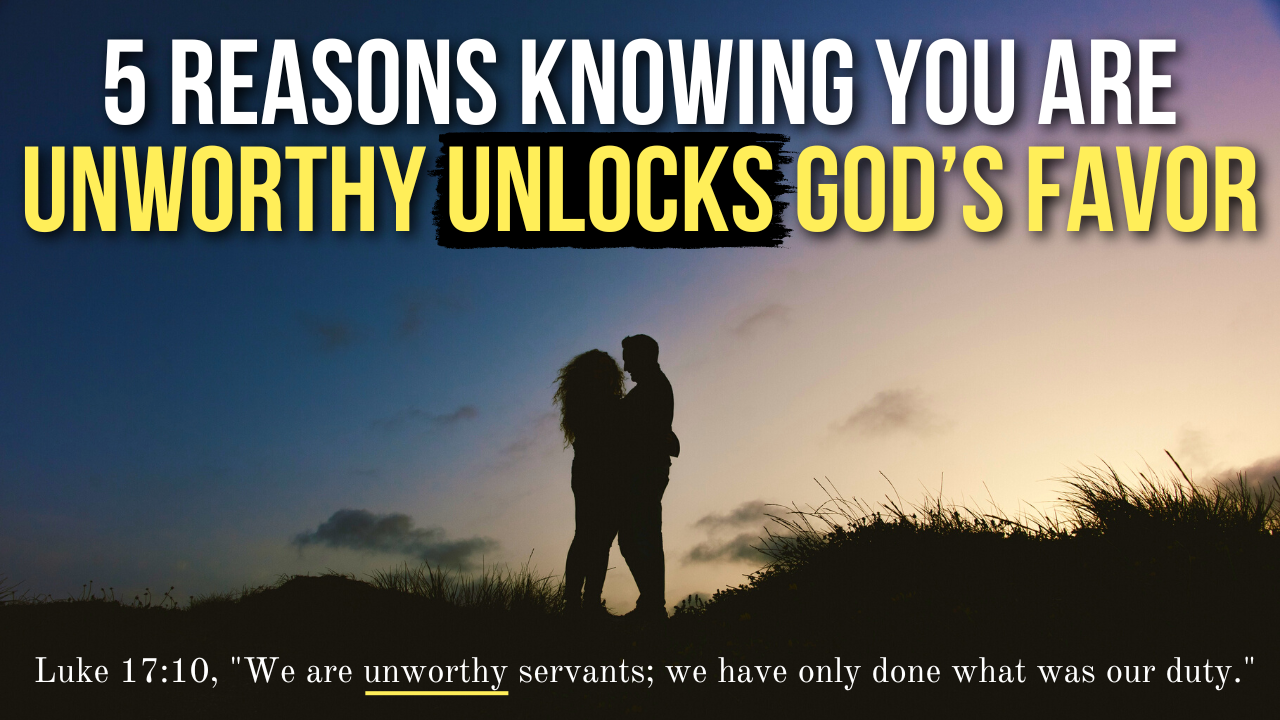
There is a difference between God showing “favoritism” compared to God showing “favor.”
Favoritism is when someone gets special treatment for a reason that other people don’t have access to. For example, if God gave extra blessings to a certain race or gender, this would be “favoritism” because he would be excluding other people from his blessings because of things outside of their control. This is why Romans 2:9-11 (NIV) states:
There will be trouble and distress for every human being who does evil: first for the Jew, then for the Gentile; but glory, honor and peace for everyone who does good: first for the Jew, then for the Gentile. For God does not show favoritism.”
Favor, however, is when God shows special kindness and blessings because he is pleased with your choices. This is why some people do have God’s special favor while others do not (Psalm 5:12). They are not given favor for an exclusive reason that is not available to all people. Rather, in Scripture, we are taught that when we do and believe certain things, God gives us favor. Psalm 84:11, “No good thing does he withhold from those who walk uprightly.”
One of the main ingredients to receiving God’s special favor is knowing you are unworthy of that favor. Here are 5 reasons knowing you are unworthy unlocks God’s favor.
1. When You Accept You Are Unworthy, You Are Open to Receive God’s Grace
God’s favor is dependent on God’s grace. Grace is an underserved gift (Ephesians 2:8-9). If you deserve it, it can’t be a gift. Romans 4:4, “Now to the one who works, his wages are not counted as a gift but as his due.”
God desires to give his grace to you, but to receive it, you must know you don’t deserve it. As Paul said in 1 Corinthians 15:9-10, which states:
For I am the least of the apostles, unworthy to be called an apostle, because I persecuted the church of God. But by the grace of God I am what I am, and his grace toward me was not in vain. On the contrary, I worked harder than any of them, though it was not I, but the grace of God that is with me.”
Paul knew he was unworthy. Thus, God’s grace in Paul’s life was free to cause Paul to work extremely hard for the gospel. God’s grace, manifesting through Paul’s works, created massive favor in Paul’s life.
2. God Often Waits to Bless Us Until We Know He’s the One Who’s Blessing Us
Everything good anyone has is from God (Acts 17:25). Notice how James warns us not to forget this fact, “Do not be deceived, my beloved brothers. Every good gift and every perfect gift is from above, coming down from the Father of lights, with whom there is no variation or shadow due to change” (James 1:16-17). He tells us not to be deceived because we so often are deceived about where goodness comes from.
While God loves us immensely, God is still God and he requires all the glory. He doesn’t require all the glory because he is an egomaniac. Rather, God is always honest and true. He cannot lie. Thus, to not require the glory would be to lie about himself because God knows he alone deserves all the glory (Isaiah 42:8). When we give glory to anyone besides God himself, we are living a lie, which God does not want for us (Psalm 29:2).
Therefore, when you know you are unworthy to receive God’s blessings, God will bless you more often and sooner than he does other people because you are not taking the glory for yourself. God won’t bless us with things that hurt our walk with him. When he gets the glory through the blessing, he is much more likely to give you that blessing.
3. When You Know You Are Unworthy, God’s Favor Results in Massive Gratitude and Praise, Which Is What He Wants
In Luke 7:41-47, Jesus taught:
A certain moneylender had two debtors. One owed five hundred denarii, and the other fifty. When they could not pay, he cancelled the debt of both. Now which of them will love him more?” Simon [the Pharisee] answered, “The one, I suppose, for whom he cancelled the larger debt.” And he said to him, “You have judged rightly.” Then turning toward the woman he said to Simon, “Do you see this woman? I entered your house; you gave me no water for my feet, but she has wet my feet with her tears and wiped them with her hair. You gave me no kiss, but from the time I came in she has not ceased to kiss my feet. You did not anoint my head with oil, but she has anointed my feet with ointment. Therefore I tell you, her sins, which are many, are forgiven—for she loved much. But he who is forgiven little, loves little.”
4. When You Know You Are Unworthy, Your Pride Does Not Get in the Way of Receiving God’s Favor
According to Scripture, a sure way to miss God’s favor is to be prideful:
- Proverbs 29:23, “One’s pride will bring him low, but he who is lowly in spirit will obtain honor.”
- Proverbs 16:18, “Pride goes before destruction, and a haughty spirit before a fall.”
- James 4:6, “God opposes the proud but gives grace to the humble.”
5. When You Know You Are Unworthy, You Can Become a Christian, Which Is God’s Greatest Expression of Favor
Relationships, health, finances, and the material things we need are all blessings from God. But God’s primary and greatest gift to us is the gift of himself. Only through the gospel of Jesus Christ can we receive a restored relationship with our Heavenly Father (John 14:6). But to receive the gospel, you must first accept that you are unworthy to receive it. As Jesus taught:
The Pharisee, standing by himself, prayed thus: ‘God, I thank you that I am not like other men, extortioners, unjust, adulterers, or even like this tax collector. I fast twice a week; I give tithes of all that I get.’ But the tax collector, standing far off, would not even lift up his eyes to heaven, but beat his breast, saying, ‘God, be merciful to me, a sinner!’ I tell you, this man went down to his house justified, rather than the other. For everyone who exalts himself will be humbled, but the one who humbles himself will be exalted.” (Luke 18:11-14)
Once you become a Christian, our greatest joy will not be found in houses, health, or spouses. Serving our Lord is our greatest blessing (Philippians 3:8). Thus, as Jesus told us, when we sacrifice for him, “So you also, when you have done all that you were commanded, say, ‘We are unworthy servants; we have only done what was our duty’” (Luke 17:10).
